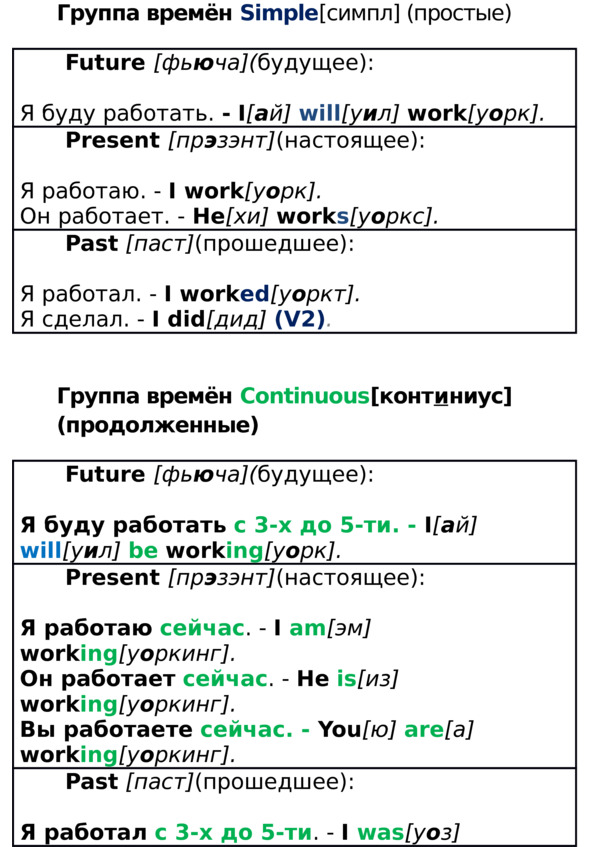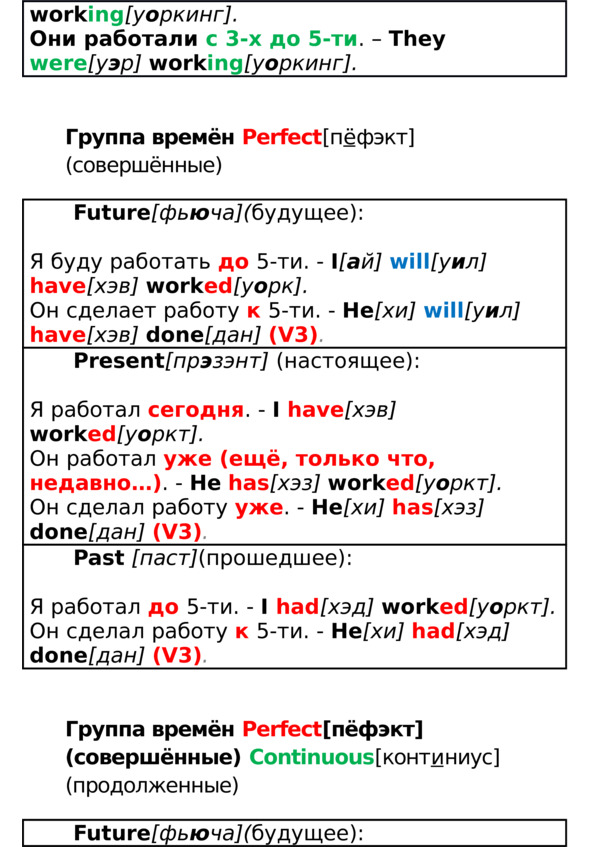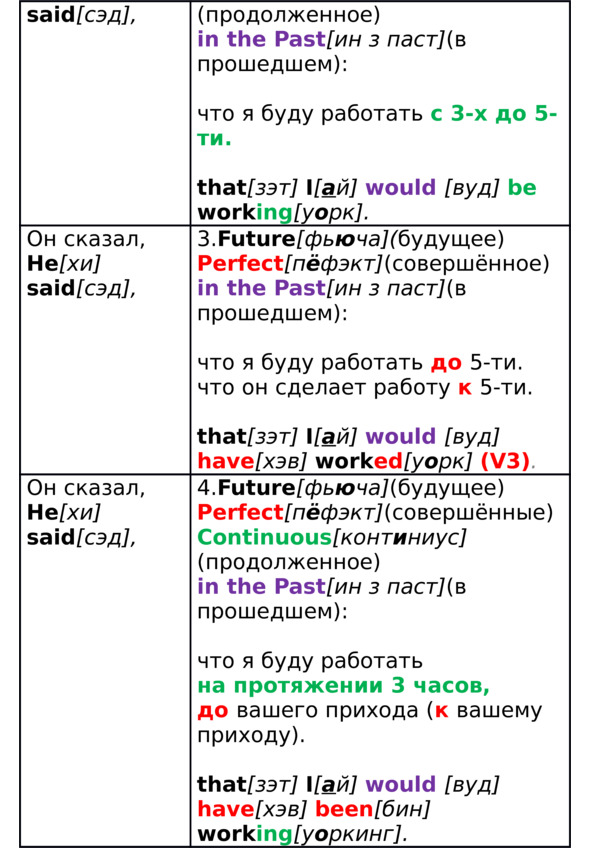Тема 4. Герундий и инфинитив
Переведите предложение на русский язык. Выберите правильный вариант.
1. We came to the theatre too late… the beginning of the play.
to see
2. This pupil writes too slowly… a good mark.
to get
3. My sister was able enough… at the age of 3.
to read
4. The brief-case was too heavy ….
to carry
5. This runner is moving quickly enough… the competition.
to win
6. This author needs enough time… writing the book.
to finish
7. This specialist is smart enough… this job.
to get
8. Now we have got enough money… a house in the UK.
to buy
9. This house is too expensive ….
to buy
10. Last weekend we had a lot of fun ….
skating
11. We lay on the sand… about our life.
speaking
12. Ann had difficulties… for the examination.
preparing
13. I bought a good dictionary… up difficult words.
to look
14. He remember… married.
getting
15. He wants his grandmother ….
to retire
16. His report about the USA was really ….
exciting
17. Do you like …?
playing the piano
18. I sold my old house… the money to buy a new one.
to get
19. They were anxious… a new program.
to begin
20. I like… English articles.
reading
21. You are lucky… such a good sister.
to have
22. I like… English because it’s a very beautiful language.
to speak
23. It was a good idea… to the USA.
to go
24. His wish… an doctor was great.
to become
25. On Monday and Thursday Nick spent his time… English.
practicing
Итоговый тест
Переведите предложение на русский язык. Выберите правильный вариант.
1. We heard his work ….
mentioned
2. My grandmother seemed… a lot.
to have changed
3. Have your homework ….
done
4. Is she interested… on this project?
in working
5. The lecturer said that «Romeo and Juliet»… by Shakespeare.
had been written
6. The pupil made a report on the book which… by J. London.
had been written
7. Nick says that his brother… in the USA.
don’t live
8. My cousin told me, «… for the party today!»
Come
9. The manager says that all the work on this presentation… by the end of the week.
will be completed
10. … written?
has the book been
11. If we… a lot of money, we… a car long ago.
had had, would have bought
12. The chief said that the work on the new project… finished as soon as possible.
had to be
13. Mike saw Bess… the road.
crossing
14. They can’t… do such a mistake.
make him
15. If my husband… a lot, we… this villa long ago.
earned, would have bought
16. The article… this scientist.
was written by
17. If we… a lot of money, we… go to the USA in the summer.
have, will
18. All the works on this project… as soon as possible.
must be finished
19. The manager wondered if the work….
had been done
20. She has never heard… these songs.
you sing
21. We have never wanted Fred… away from the USA.
to go
22. This house… long ago.
was built
23 That pupil… at another school.
was thought to study
24. The lecturer wanted… the report.
the students to make
25. Ann is… good articles.
known to write
26. Ann said she… the translation by the end of the month.
would have finished
27. Fred said that he… in that country for 2 years.
had been working
28. Our chief thought that all the works on that object… by June but he was wrong.
would have been completed
29. Mike said… to see me off the next day.
he would come
30. My friend said that his cousins… in London.
didn’t live
31. The teacher says the exams… by the end of the week.
will have finished
Приложения
Приложение 1. Времена английского языка




Приложение 2, Основные правила английской грамматики
Правила согласования времен в английском языке


Второе правило согласования времён
Правило согласования времён для глаголов-сказуемых, передающих реальные физические действия в сложносочинённом предложении
Если глаголы-сказуемые в сложносочинённом предложении, передают реальные физические действия, их времена определяются логически, в зависимости от того, как действия в прошлом происходили в отношении друг друга.
1. Если действия в главном и придаточном происходили в прошлом одновременно, глаголы сказуемые ставятся в Past Simple или в Past Continuous, в зависимости от характера действия, например:
Я вошел в комнату, когда мой друг читал книгу. – I came into the room, when my friend was reading a book.
Я вошел в комнату, а Ник вышел. – I came into the room and Nick went out.
2. Если есть два действия в прошлом и одно из них происходило раньше, оно выражается в Past Perfect или Past Perfect Continuous, в зависимости от характера действия, а действие, происходившее позже – в Past Simple, например:
Я вошел в комнату, когда Ник уже вышел. – I came into the room when Nick had gone out.
Третье правило согласования времён
Если в сложноподчиненном предложении есть более одного придаточного предложения в прошедшем времени, сначала подбираются времена для глаголов-сказуемых главного предложения и придаточного предложения, к которому оно относится по смыслу, например:
Я объяснил, что я вошел в комнату, когда Ник вышел. – I explained that I had come into the room…
Далее подбирается время для глагола-сказуемого второго придаточного предложения.
1. Если действие во втором придаточном предложении происходит одновременно с действием в первом придаточном, его глагол-сказуемое следует ставить в простое прошедшее (Past Simple) или в продолженное прошедшее время (Past Continuous Tense), в зависимости от характера действия, например:
Я объяснил, что я вошел в комнату, когда Ник вышел. – I explained that I had come into the room, when Nick went out.
Я объяснил, что я вошел в комнату, когда Ник выходил. – I explained that I had come into the room, when Nick was going out.
2. Если действие во втором придаточном предложении происходит раньше, чем действие в первом придаточном, его глагол-сказуемое следует ставить в прошедшее совершенное (Past Perfect) или в прошедшее совершенное продолженное время (Past Perfect Continuous Tense), в зависимости от характера действия, например:
Я объяснил, что я вошел в комнату, когда Ник уже вышел. – I explained that I had come into the room, when Nick had gone out.
Я объяснил, что я вошел в комнату, когда Ник уже какое-то время сидел на диване. – I explained that I had come into the room, when Nick had been sitting in the sofa for some time.

